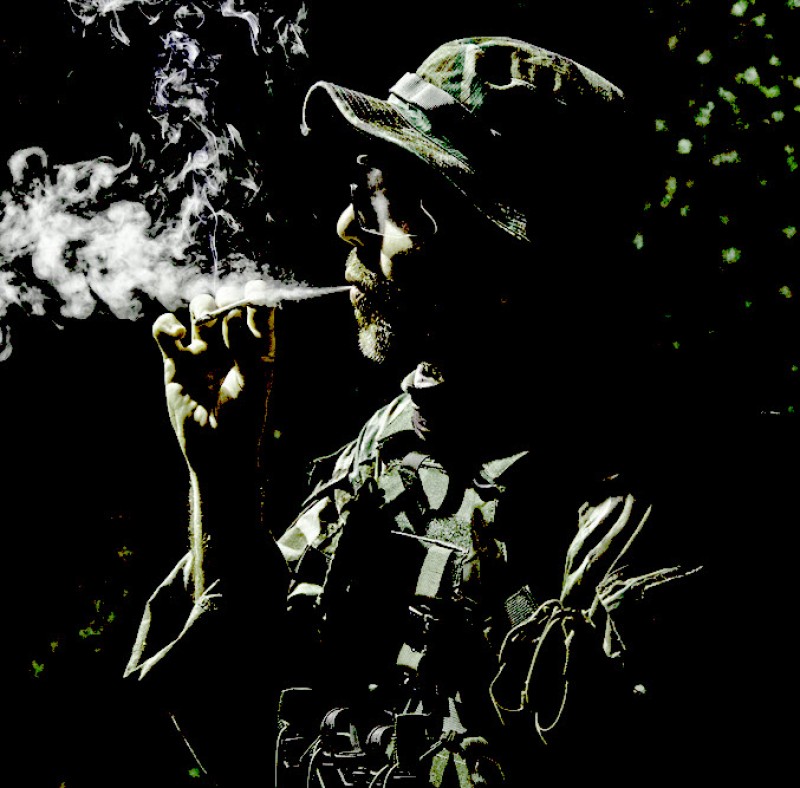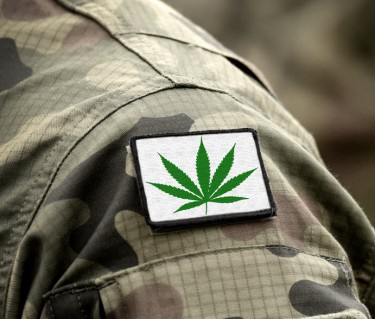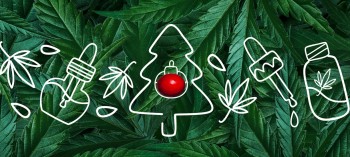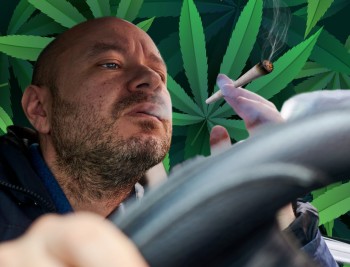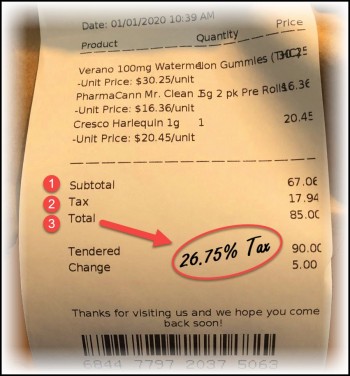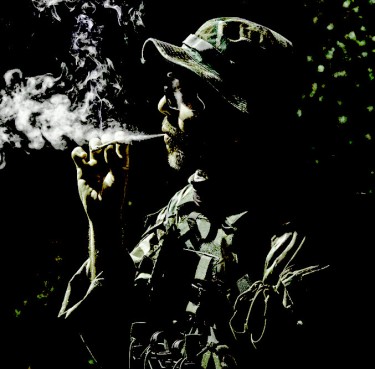
Why Vets Bet on Pot!
Meet Jack, a military veteran who valiantly served his country, only to return home with wounds that ran deeper than the eye could see. As he attempted to reacclimate to civilian life, the burden of PTSD weighed heavily on his soul, a haunting reminder of the unspeakable horrors he had witnessed while deployed. His nights were tormented by nightmares, and his days were clouded by anxiety and despair.
In search of relief, Jack sought professional help, but the prescribed antidepressants only seemed to deepen his suffering. Desperate for solace, he turned to alcohol, his loyal yet treacherous companion in the battle against his demons. He was a man on the edge, teetering precariously between hope and despair, until one fateful day, a fellow veteran offered him a small edible and a hit from a joint.
Skeptical but out of options, Jack took the plunge, and as the cannabis coursed through his veins, something miraculous happened. His tightly coiled muscles began to relax, his racing thoughts slowed, and for the first time in what felt like an eternity, his nervous system shifted into the parasympathetic mode, allowing his body and mind to unwind.
Jack's story echoes the experiences of countless other men and women who have donned the uniform and faced the unimaginable in service to their country. As they return home, these brave souls often find themselves grappling with the debilitating effects of PTSD and the challenges of reintegrating into society. Traditional treatments often fall short of providing the relief they desperately need, leaving them searching for alternative solutions.
In their quest for healing, many veterans, like Jack, have discovered the transformative power of cannabis. No longer simply an illicit substance, marijuana has emerged as a beacon of hope for those struggling with the invisible scars of war. In this article, we'll delve into the reasons why an increasing number of vets are betting on pot as a viable path towards reclaiming their lives and finding solace amidst the chaos of their inner battles.
Recent findings suggest…
According to the Department of Defense (DOD), marijuana's primary psychoactive component, delta-9 THC, tops the list of substances found in positive drug tests for active-duty military service members. The runner-up is delta-8 THC, increasingly prevalent in hemp-derived products, even in states where marijuana remains illegal.
In response to a 2022 inquiry by Sen. Ed Markey (D-MA) and colleagues, the DOD detailed its efforts to combat drug overdoses, promote harm reduction programs, and destigmatize treatment, particularly focusing on addressing opioid misuse. The response also revealed that, mirroring general population use rates, cannabis is the most common substance detected in drug tests for service members.
For Fiscal Year 2021, delta-9 THC accounted for 73.4% of all unique drug-positive tests among active-duty service members. Delta-8 THC, though naturally occurring in trace amounts in cannabis plants, was found in 42.7% of drug tests, largely due to its synthetic production. The DOD noted that delta-9 THC contamination during the delta-8 THC production process explains the co-occurrence of both cannabinoids in many positive tests.
The prevalence of marijuana in positive drug tests for military personnel is partly due to its increasing availability in regulated markets as states legalize it. Another factor is that THC's inactive metabolite can linger in a person's system for weeks or months, unlike drugs like cocaine, which exit within days.
In a letter to Sen. Ed Markey, the DOD outlined its efforts to educate service members on the risks of substance misuse and the penalties for positive drug tests. The department is also implementing harm reduction policies to support those seeking treatment and reducing stigma around addiction.
Sen. Markey highlighted the urgency of ensuring access to quality care without stigma or shame. The DOD has been closely monitoring cannabis policy amidst the state-level legalization movement. Last year, the department expressed concerns about CBD-infused products like hand sanitizer or hemp granola, suggesting they could compromise military readiness and should therefore be avoided.
But what does “readiness” have to do with CBD or THC for that matter? Well, that comes due to government policy relating to the war on drugs.
“Military readiness refers to the preparedness of armed forces to respond effectively to any situation or threat, ensuring the safety and security of a nation. It encompasses various aspects of military operations, including personnel, equipment, training, and overall force capability.”
Which means that according to military policy, a person’s “readiness” is compromised due to their use of cannabis - any kind!
Yet what evidence do they have? Or is this merely based on the fact that the federal government doesn’t permit cannabis, and as a consequence - this life changing medicine is being withheld from the very people who need it most.
Not to mention, wouldn’t being “shell shocked” be an indicator of “not being ready?” When the nervous system has been battered so much that the sound of a car exhaust exploding might have them diving to the floor.
It’s simply another reason as to why we do need to completely do away with the war on drugs and drug prohibition.
Of course, we don’t want military personnel tripping on LSD while they are fighting, however, these vets should have the right to use it to deal with the side-effects of war, which the government is so compelled to get into.
Probably the real reason why cannabis or psychedelics isn’t allowed in the military
In the smoky haze of psychedelics and cannabis, many souls have found themselves drifting away from the path of violence, embracing a newfound understanding of the human experience. The profound insights gained from these altered states of consciousness often illuminate the futility of endless wars, fueled by the machinations of private corporations peddling weapons and destruction for profit.
This revelation could, in part, explain the military's reluctance to allow soldiers to consume such substances. Envision a soldier who, after partaking in these mind-expanding journeys, begins to empathize with the so-called enemy. They come to understand that those on the other side of the battle line are also human beings, defending their homeland against what they perceive to be threats.
The ability to see the world through another's eyes, transcending the narrow confines of cultural and political divides, could potentially weaken the resolve of a soldier trained to follow orders without question. This newfound empathy may challenge the very foundations of the military-industrial complex, where unquestioning loyalty and obedience are paramount.
In a world where soldiers can recognize the humanity in their adversaries, the gears of war might grind to a halt, leaving no room for profiteers to exploit the suffering of others. Thus, the prohibition of cannabis and psychedelics within the military may be less about maintaining military readiness and more about preserving the status quo—a world where divisions are exploited for gain, and the machinery of war continues to churn.
As our society grapples with the consequences of our choices, perhaps it's time to reconsider the wisdom of barring access to substances that could foster empathy, understanding, and ultimately, a more peaceful world.
The Sticky Bottomline
As the prevalence of cannabis in military drug screenings comes to light, it's crucial for society to recognize the potential value of this plant for mental health, particularly for those who have faced unimaginable hardships. The very fact that service members, who bear the scars of war and its traumatic aftermath, are turning to cannabis as a means of relief speaks volumes about its potential therapeutic benefits.
While the military may continue to enforce its strict policies on substance use, it's time for society as a whole to rethink the way we perceive and utilize cannabis. The plant could provide much-needed relief to our veterans, offering a balm for the emotional and psychological wounds that often remain long after the physical ones have healed.
Rather than demonizing cannabis and other mind-expanding substances, we should strive to understand their potential in fostering empathy, healing, and unity in a world all too often divided by conflict. By embracing the therapeutic potential of these substances, we could not only support the mental health of our soldiers but also contribute to a more compassionate and peaceful society.
In conclusion, the increasing presence of cannabis in military drug screenings is not a cause for alarm but rather an opportunity for reflection and growth. It's a call for us to open our minds to the potential benefits of this ancient plant and to explore new ways to promote healing and understanding among the battered and the bruised. Only then can we begin to forge a path toward a brighter, more compassionate future for all.
